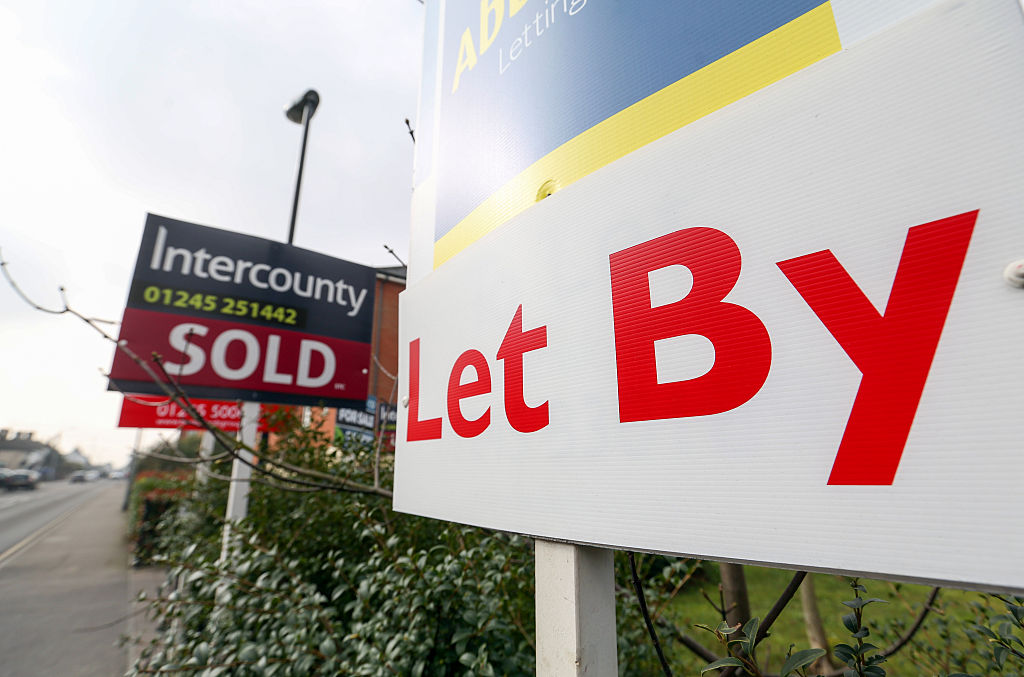UK ranked as ninth-worst country for property investment
High taxes and rising transaction costs have put pressure on the UK's buy-to-let sector. Is the UK still profitable?


Get the latest financial news, insights and expert analysis from our award-winning MoneyWeek team, to help you understand what really matters when it comes to your finances.
You are now subscribed
Your newsletter sign-up was successful
Want to add more newsletters?

Twice daily
MoneyWeek
Get the latest financial news, insights and expert analysis from our award-winning MoneyWeek team, to help you understand what really matters when it comes to your finances.

Four times a week
Look After My Bills
Sign up to our free money-saving newsletter, filled with the latest news and expert advice to help you find the best tips and deals for managing your bills. Start saving today!
The UK is the ninth-worst country for property investment due to high taxes and rising transaction costs, according to a study that further highlights the pressure on Britain’s buy-to-let sector.
Removals firm 1st Move International analysed various factors, including rental yields and property taxes, to identify the best and worst property markets in terms of financial returns.
The UK came out as ninth-worst from the study, while central and eastern European countries topped the list.
MoneyWeek
Subscribe to MoneyWeek today and get your first six magazine issues absolutely FREE

Sign up to Money Morning
Don't miss the latest investment and personal finances news, market analysis, plus money-saving tips with our free twice-daily newsletter
Don't miss the latest investment and personal finances news, market analysis, plus money-saving tips with our free twice-daily newsletter
The company said: “The UK rental market is currently in crisis, with average rental costs skyrocketing by 8.4%. Coupled with high taxes on landlords, the UK has lost its attractiveness for property investment.”
The UK was given an investment score of 4.13 out of 10. The removals firm said that, although the country “boasts a relatively strong rental profit of 7.03% per annum”, high tax rates hinder its appeal to investors.
“The income tax on rent stands at a staggering 47%, while buying costs are also significant at 15.10%,” it said.
Belgium was the worst country for property investment, with a score of 2.90 out of 10. France was the second-worst, with a score of 3.21.
At the other end of the scale, Lithuania was the best country for property investment, with a score of 7.1, followed by Estonia at 7.04. Ireland was fourth with 6.55.
Landlords exit the buy-to-let sector
The findings come as Rightmove figures show almost a fifth (18%) of homes currently being put up for sale used to be rented out. This is up from 8% in 2010 and well above the five-year average (14%).
London has had the biggest lettings-to-sales turnover, with 29% of the properties currently on offer having previously been available to rent, the property listing website found.
The numbers follow concerns that the withdrawal of mortgage interest relief and the threat of a capital gains tax raid in this month’s Budget could increase the number of landlords quitting the rental market. The National Residential Landlords Association has urged Labour to bring in “pro-growth tax plans” to ensure there is enough stock to house renters.
Is buy-to-let still worth it?
Landlords have faced plenty of pressure in recent years, with extra stamp duty charges on buy-to-let purchases and restrictions on mortgage interest relief. New regulations in the Renters’ Rights Bill will also make It harder to evict tenants.
The average number of tenant enquiries for each rental property available has fallen to 15, down from 23 at this time last year, Rightmove said.
But it is still almost double the eight recorded in 2019. Meanwhile the number of available rental properties is now 13% higher than last year, though still 27% below 2019, which is keeping rental growth down.
A fifth of rental properties are currently seeing a reduction in the advertised rental price before finding a tenant, Rightmove said. This compares with 16% last year and is the highest figure at this time of year since 2020.
“We are seeing some landlords choosing to exit the market with potential tax changes and stricter energy performance certificate regulations as additional factors in landlords’ decision-making,” says Rightmove’s director of property science Tim Bannister.
“With rental supply under strain, incentivising landlords to invest in energy-efficient upgrades or offering tax relief could help maintain rental supply and, ultimately, ease affordability pressures for tenants."
However, new data from Foxtons shows that rental demand in August continued to reach record highs for 2024, with an average of 23 new renters per new instruction in London – up 23% on a monthly basis.
Get the latest financial news, insights and expert analysis from our award-winning MoneyWeek team, to help you understand what really matters when it comes to your finances.
Chris is a freelance journalist, and was previously an editor and correspondent at the Financial Times as well as the business and money editor at The i Newspaper. He is also the author of the Virgin Money Maker, the personal finance guide published by Virgin Books, and has written for the BBC, The Wall Street Journal, The Independent, South China Morning Post, TimeOut, Barron's and The Guardian. He is a graduate in Economics.
-
 Should you buy an active ETF?
Should you buy an active ETF?ETFs are often mischaracterised as passive products, but they can be a convenient way to add active management to your portfolio
-
 Power up your pension before 5 April – easy ways to save before the tax year end
Power up your pension before 5 April – easy ways to save before the tax year endWith the end of the tax year looming, pension savers currently have a window to review and maximise what’s going into their retirement funds – we look at how
